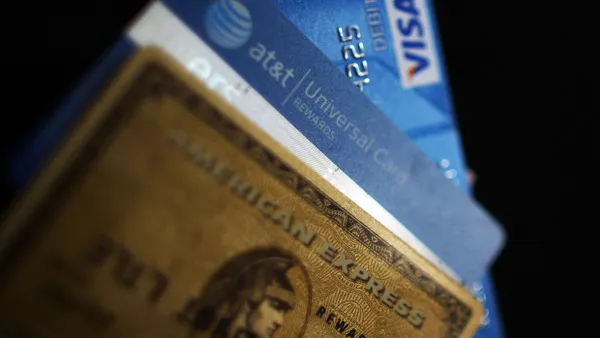Mark E. Budnitz is a senior fellow at the Consumer Policy Center and a former professor of law at Georgia State University. He also formerly headed the Bankruptcy Reorganization branch of the Securities and Exchange Commission’s southeastern office.
Stablecoin use has been exploding, with monthly transaction volume of U.S.-backed coins increasing from nearly nothing in 2020 to over a trillion dollars this past September. This dramatic increase accelerated after President Trump signed the Genius Act into law last July.
Exchanges and platforms including PayPal, Apple Pay, and Google Pay have already made payment stablecoins available. Now major banks, nonbanks such as Mastercard and Visa, large retailers such as Walmart and Amazon, and the states of Wyoming and North Dakota are seriously considering or actually planning the introduction of this new payment mechanism.

The Genius Act establishes a regulatory framework allowing banks and nonbanks to issue stablecoins that consumers can use for purchasing products and making overseas payments. The White House, a Senate Committee, and some media outlets have touted the Act as a consumer protection law.
However, the Genius Act does not adequately protect consumers. It does not include many safeguards that are included in the federal laws that govern debit and credit cards. As a result, payment stablecoins are riskier and possibly more expensive than other consumer payment methods.
Stablecoin payments are irreversible. If there was an erroneous payment, the consumer needs to be able to complain to the issuer. However, unlike those other laws, the Act does not require issuers to have an error resolution procedure. The Act also does not protect consumers if there are unauthorized or fraudulent transfers. Furthermore, the Act is poorly drafted. As a result, it is unclear whether the statute pre-empts state consumer protection law.
Consumers’ ability to redeem their payment stablecoins is crucial. The Act requires issuers to permit redemption and disclose their redemption policy. However, it does not set any limit on redemption fees that issuers can charge and how promptly issuers must redeem their customers’ payment stablecoins. Issuers are required to give consumers as little as seven days notice of any change in their redemption policies.
Issuers are required to establish reserves that are supposed to contain sufficient funds to redeem consumers’ payment stablecoins. However, stablecoins are not covered by FDIC insurance and nonbanks in bankruptcy may not have sufficient funds in their reserves to
fully compensate consumers. If that happens, consumers can claim payment from the bankrupt’s other assets. But there is no guarantee consumers will be able to fully recover all their money.
Consumers using payment stablecoins do not have a private right of action. Consequently, even if an issuer clearly violates the Act, the consumer has no right to sue the issuer for that violation. In sharp contrast, the law governing debit and credit cards grants successful consumers damages, costs, and reasonable attorney’s fees.
As a result of the failure to include a private right of action, consumers must depend upon government agencies for enforcement of the Act. Consumers may reasonably question the ability and willingness of federal agencies to write adequate rules, aggressively supervise issuers, and bring enforcement actions against violators. The present administration’s extensive agency staff reductions and the voluntary termination of numerous enforcement proceedings against financial institutions does not inspire confidence.
Moreover, certain issuers can choose to be regulated by state agencies. Since this is a role the agencies never had before passage of the Act, they have no experience with this type of regulation and likely will face funding constraints in assuming their new responsibilities.
Financial institutions and retailers offering or contemplating use of payment stablecoins should be aware that consumer advocates and lawyers are monitoring developments in this marketplace. Businesses seeking to take advantage of the Genius Act’s weak consumer protections risk public exposure, reputational risk, and litigation.













